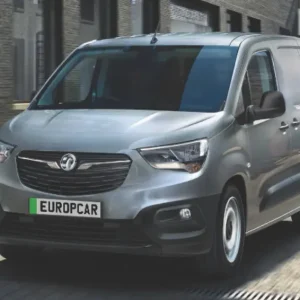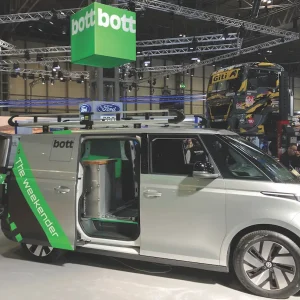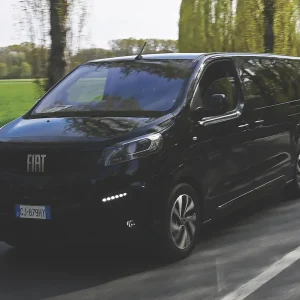It has been getting Ecoflex versions of many of the key models in its light commercial line-up into production, a move that is helping to reduce the carbon footprint of its customers and their fuel bills. Such a praiseworthy initiative makes the company and its Ecoflex programme a worthy recipient of What Van?’s Green award for 2013.
The beauty of the Ecoflex approach is that it does not involve deploying complex and costly technology that may fail in service, frighten away potential buyers when the van concerned eventually appears on the used market, and as a consequence wreck its residual value. Instead, it involves making a series of fairly basic changes to the vehicle that, when working in concert, achieve the desired effect. We’re talking about such things as fitting low rolling-resistance tyres, optimising gear ratios, slightly altering the van’s aerodynamics, lowering its height, and using enhanced thermal management. You can add to all of that an indicator on the dashboard that tells you when to change up – or down – in order to achieve the best combination of fuel economy and driving dynamics.
Such steps have had a positive impact on the environmental credentials of, for example,
the 115hp short-wheelbase standard roof 2.0 CDTi Vivaro. Giving it the Ecoflex treatment has resulted in CO2 emissions falling from 198g/km to 180g/km. The combined fuel economy
figure has improved from the standard model’s 37.7mpg to a more-frugal 40.9mpg.
In some cases, Ecoflex also includes stop/start. It automatically kills the engine if the driver allows it to idle wastefully in a traffic jam or while waiting for the lights to change. The engine can be restarted quickly when needed.
The 95hp Corsavan 1.3 CDTi Ecoflex Start/Stop has achieved an astonishing 83.1mpg on the combined cycle with CO2 emissions set at a mere 89g/km – one reason why the diminutive Vauxhall has driven off with our Small Van of the Year prize.
Nor are Ecoflex models dull to drive. Okay, on-the-road performance may suffer a little when compared to standard vans, but most drivers will barely notice the difference. Admittedly, they cost a little more than their mainstream equivalents, but you should soon see your money back in lower fuel bills.
It is also worth noting that Vauxhall is offering another means of helping van drivers save fuel, shrink their carbon footprint, and hopefully reduce the risk of speeding tickets and accidents, namely speed-limiters.
The Vivaro, for instance, is up for grabs with a selection of limiters that will restrict the vehicle’s top speed to 56mph, 62mph or 68mph.
Highly Commended
Our Highly Commended award goes to the Department for Transport’s Plug-in Van Grant. Announced at the start of 2012, it cuts the front-end price of an eligible environmentally friendly light commercial – Renault’s electric Kangoo Van Z.E is a prime example – by 20% up to a maximum of £8000.





